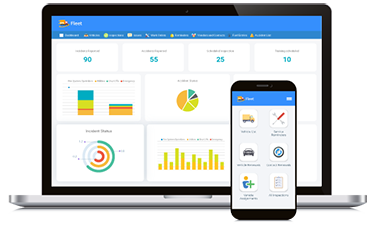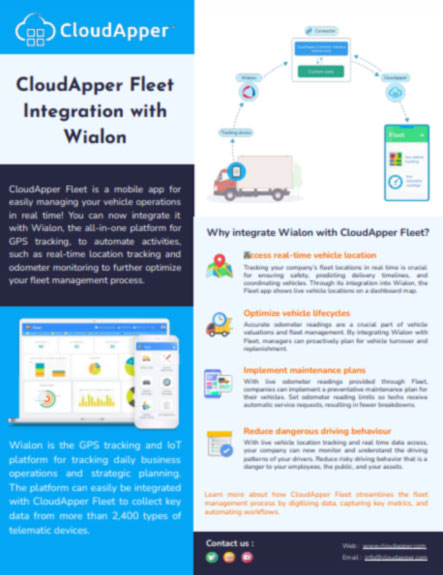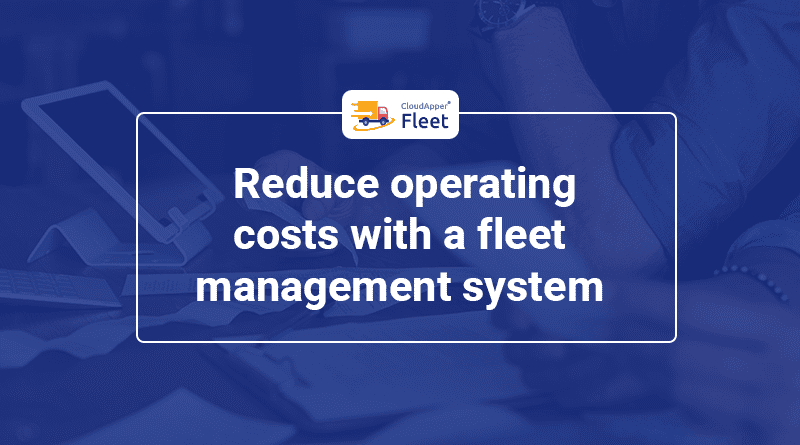It is often seen that large companies use fleet management software to manage their fleet operations. If a company is small, it might not need a system to operate efficiently. It will have few tasks and managing them will be relatively easy. That is why they often rely on spreadsheets or even handwritten methods for record-keeping and management.
However, when the operation is big, things start getting messy and hard to manage. The daily activity of the company increases which generates data that is very hard to track.
Traditional methods will not be the best for them since they will be lengthy and sometimes even confusing. That is why most big companies prefer to use a fleet management system to operate more efficiently. Surprisingly, the CloudApper Fleet app is the perfect fit for both big and small firms. The functions are customizable, so companies can enjoy the best of both worlds.
Why do companies use spreadsheets for fleet management?
Businesses do not want to increase their expenses. Expense is a factor that directly affects the net profit, which is why it is more visible to stakeholders. Although a fleet management application is a much better option, because management wants to keep operating costs low, they don’t want to try this new idea.
Some of the reasons why a spreadsheet might be preferred are:
The size of a small business
The business is working fine using only spreadsheets. The operation’s size is small, and the manager himself is capable of smoothly running the business.
It is affordable and easy to implement
The setup process is very easy. To get started, almost everyone knows how to set up spreadsheets on their devices. The increase in operating expense factor is also eliminated with the help of spreadsheets.
Limited knowledge is needed to function
With basic computer knowledge, anyone can use spreadsheets. It’s based on a very simple concept, so managers and employees can adapt quickly.
You may also like to read: How Do You Manage Your Fleet Effectively?
No training is required.
The spreadsheet is renowned in most parts of the world. For most companies, it is a necessity, which is why most employees have a basic knowledge of spreadsheets. Therefore, they do not have to be given additional training.
Spreadsheet Restrictions
Due to the benefits a spreadsheet provides, most companies ignore its limitations. The method serves the company in a cost-effective way. For that reason, most owners may not heed the scope of improvement. Some of the limitations of the spreadsheet are:
- Spreadsheets are more likely to be designed and created “in-house,” limiting reporting functions.
- There is increased administrative time required to complete processes such as driver’s license verification.
- Data errors are more likely to be caused by typing mistakes, writing that can’t be read, and missing or incomplete paperwork.
- Functionality and reporting capabilities are limited.
- When out-of-date information is used to make decisions and write reports, records are reactive instead of proactive.
- If data entry takes too long, the information used to make decisions and write reports may be out of date.
- Limited integration with external providers and services.
- Time-bound task of manually entering, scanning, and filing paper-based forms.
How a fleet management system is better
From initial acquisition to final retirement, fleet management software handles it all. The information channels in this management process are not limited. It alerts the relevant employee with notifications, keeping them active on the job.
Vehicle management
Any vehicle or asset in your operation can be recorded, assigned, and managed.
Fuel tracking
Manage your fleet’s fuel expenses and use data to determine the best way to save money.
Drivers
By increasing driver visibility and management, you reduce risk and increase compliance.
Maintenance
Reduce downtime, monitor vehicle availability, and keep costs under control.
Incident record
Accidents can be tracked in real-time, and pictures of the accident can be uploaded to the system to help technicians do their work in the future.
Vendor management
Keep track of vendors according to the parts or assets. CloudApper also offers an Assets app, which helps keep track of everything related to your assets.
The CloudApper Fleet app is developed with both the simplicity of spreadsheets and the functionality of a powerful fleet management software. It matches all the characteristics of spreadsheets along with performing heavy-duty tasks for large organizations. Therefore, regardless of the size of the companies, the fleet app is made for all types of businesses.

















